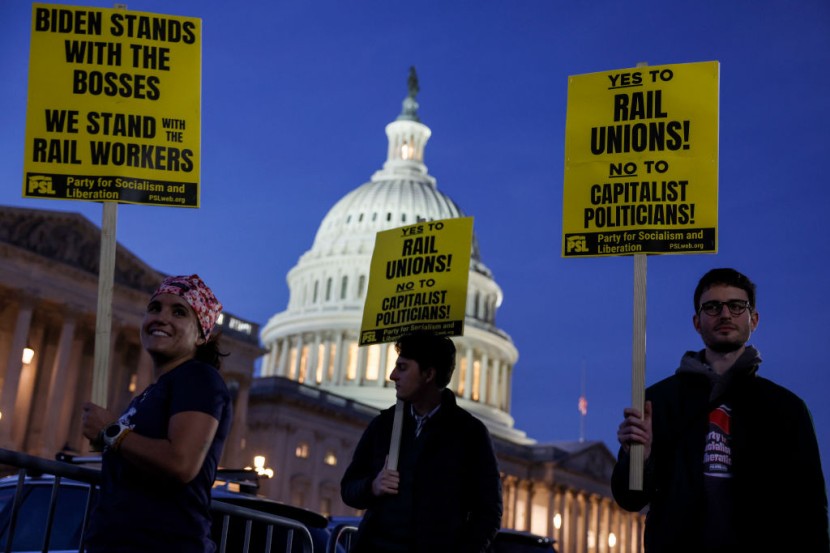
The United States Senate has moved to avert a national railroad strike, which could have had devastating effects on the country's supply chains, by passing legislation that forced a labor agreement.
The Thursday move comes after a warning from U.S. President Joe Biden about the economic dangers that the strike posed. It also comes a day after the House passed a tentative rail agreement. The measure can now make its way to the president's office and be signed into law.
Preventing Railroad Strike
The Senate's vote also followed mounting pressure from labor unions calling on lawmakers to take immediate action to avert the strike. Earlier on Thursday, Senate Majority Leader Chuck Schumer said that the Senate "cannot leave until we get the job done." The final vote on the legislation was 80 to 15.
A rail strike, if not prevented with congressional action, could have started as early as Dec. 9 and would have resulted in shortages, spiking prices, and halting factory production. Furthermore, it could have disrupted national commuter rail services that up to 7 million travelers use per day as well as the transportation of 6,300 carloads of food and farm products per day, as per CNN.
Despite the passing of legislation, a potential complication in the effort had been a push by progressives to include a provision to the agreement that was related to paid sick leave. The Senate failed to pass a House-passed paid sick leave on Thursday.
President Biden also defended his administration's efforts in trying to prevent the rail strike on Thursday despite criticism from union leaders. The latter argued that a deal that the White House brokered did not meet workers' demands for paid leave.
According to ABC News, the Senate also voted down two additional provisions to address the labor issue; whether to institute a 60-day extension of the cooling-off period between both parties involved and whether to grant workers seven days of paid sick leave.
Paid Sick Leave
The first agenda failed with a vote of 69-26 while the paid sick leave vote fell short of the 60 needed to pass with a result of 52-43. Six GOP members voted in support of the addition of paid sick leave, Lindsey Graham, Josh Hawley, Marco Rubio, Ted Cruz, Michael Braun, and John Kennedy. On the other hand, only one Democrat, Joe Manchin, voted no on the provision.
A third vote, which sought to uphold the agreement that was negotiated by the White House between freight employees and their bosses in September, passed with a result of 80-15. On Thursday, Biden said that he would sign the rail agreement bill "as soon as it comes to my desk."
The situation comes as four transportation unions, which included nearly 100,000 rail workers, argued that the deal was unfair. The 60-vote threshold for the unions' demand for increased paid sick leave made it significantly harder for the chamber to pass the measure due to its limited support from Republican lawmakers, much to the frustration of Hawley, who was among those who voted for it, Fox Business reported.
Related Article : SNAP Benefits December 2022: States Extend Food Assistance Program Until The Last Month of the Year
© 2025 HNGN, All rights reserved. Do not reproduce without permission.








